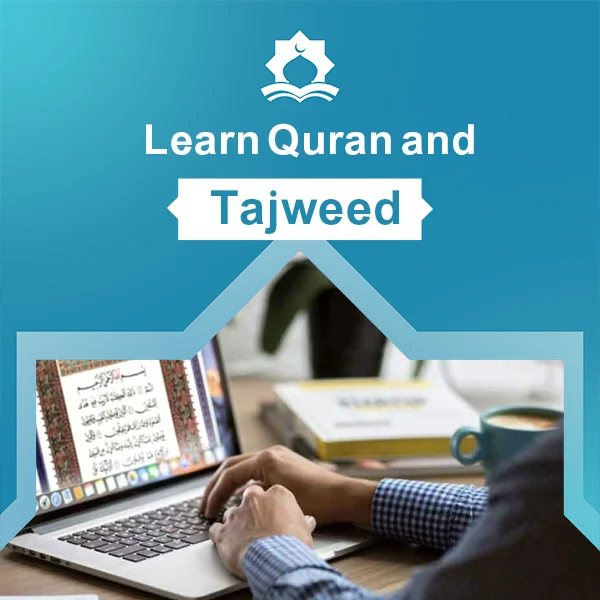Discover flexible online courses designed to master the Holy Quran with a comfortable and supportive learning environment right from your home.

What challenges might I face when l learn quran and tajweed?
- Consistency and Time Management
Flexible scheduling, staying committed and finding regular time in your day,especially with work, school, or family obligations can be challenging.
Building a routine requires discipline and motivation.
- Pronunciation and Tajweed Rules
Tajweed involves mastering precise Arabic pronunciation, which can be difficult for non-native speakers.
However, this challenge is eased by the platform’s certified and multilingual teachers, who provide step-by-step guidance to help you pronounce letters correctly and apply Tajweed rules accurately.
- Learning Online for the First Time
If you’re not used to learning online, you might need time to adjust to using platforms like Zoom Quran Classes.
But some platforms are designed to be user-friendly, and your experience is supported by professional instructors in a virtual environment.
- Initial Hesitation or Lack of Confidence
Some learners, especially adults or beginners, might feel hesitant or overwhelmed at the start.
The good news is some platforms like Top Quran Classes offer two free trial classes, giving you a no-pressure opportunity to get comfortable before making any commitment.
- Understanding Classical Arabic
The Quran is written in Classical Arabic, which may be challenging if you’re unfamiliar with the language.
The multilingual teachers can bridge this gap, explaining meanings and grammar in your preferred language.
What is the process for starting online Quran classes with Top Quran Classes ?
Getting started with learning the Quran online is simple and beginner-friendly. Here’s how the process works:
Step 1: Submit the Free Trial Request
Begin by filling out the Free Trial Form available on the website. This form allows the support team to gather your basic information and preferred schedule for the trial class.
Tip: This trial gives you a chance to experience the teaching style with no commitment required.
Step 2: Confirm Your Appointment
Within 24 hours of submitting your request, a tutor will contact you through email, phone call, or WhatsApp to confirm your selected time and share the next steps.
Step 3: Prepare for the Session
To join your class, simply download Zoom or Skype,whichever is more convenient for you.
After your appointment is confirmed, you’ll receive the Zoom Room link or Skype ID needed to access your session.
This streamlined process ensures that you can begin your Quran learning journey with ease, flexibility, and full support from qualified teachers.
Frequently Asked Questions about Learning and Memorizing the Quran Online
Why is online learning a good option for studying the Quran?
Online Quran learning offers several key benefits:
- Flexible scheduling that allows you to choose class times that suit your daily routine.
- Access to certified and experienced teachers from around the world.
- Personalized one-on-one classes that focus on your individual progress and needs.
- Convenience of studying from home without the need to travel.
How can I begin memorizing the Quran online?
Getting started is simple by following these steps:
- Contact the platform and book a trial class.
- Set a sincere intention to stay committed throughout the journey.
- Select a program that fits your current level.
- Begin memorizing with short surahs to build confidence and consistency.
How much time does it take to memorize the entire Quran?
The time needed varies depending on several factors:
- Your current memorization ability and familiarity with Arabic.
- How much time you can dedicate daily or weekly.
- Consistency in attending and practicing lessons.
- Some students complete memorization in a few years, while others may need more time.
Can I choose a male or female teacher?
Yes, many platforms offer the option to select a teacher based on your preference, allowing you to feel more comfortable and focused during your learning journey.
Will I receive a certificate after memorizing the Quran?
Yes, certificates are often awarded upon completing milestones. In some cases, students may also qualify for an Ijazah certificate if they meet the necessary recitation and Tajweed requirements
What is an Ijazah and why is it important?
An Ijazah is a formal certification issued by a qualified Sheikh. It confirms that you have memorized and recited the Quran accurately with correct Tajweed and narration.
What qualifies someone to teach the Quran?
A qualified Quran teacher typically has:
- Deep knowledge of Quranic sciences and rules of Tajweed.
- Formal certification, such as an Ijazah.
- Strong moral character and a commitment to Islamic values.
- Experience in effectively teaching both children and adults.
How do Quran Classes ensure high teaching standards?
- Carefully selecting teachers based on their qualifications and teaching experience.
- Ensuring each teacher has a strong background in Quranic knowledge and Tajweed.
- Prioritizing character, sincerity, and the ability to convey Islamic values effectively.
How flexible are the class schedules?
Class timings are highly flexible. You can choose the schedule that works best for you, whether you are a student, a working professional, or a parent.

Small Steps, Big Results: How to Start Learning the Quran and tajweed
- Learn the Arabic Alphabet First
- Begin with mastering the Arabic alphabet, the essential foundation of reading the Quran.
- Recognize the shape, sound, and position of each letter in different word forms.
- Practice both isolated letters and how they connect in words.
- This step helps you build fluency and prepares you for reading Arabic text accurately.
- Study Noorani Qaida to Build a Strong Base
- Noorani Qaida is an introductory book designed for beginners, especially non-Arabic speakers.
- It teaches letter recognition, phonetics, and basic joining of letters.
- You will also learn how to correctly pronounce simple words and verses.
- Completing Noorani Qaida helps bridge the gap between basic Arabic and Quranic recitation.
- Begin Learning Basic Tajweed Rules
- Tajweed is the science of Quranic pronunciation and recitation.
- Start by understanding Makharij (the articulation points) to pronounce each letter from its correct origin in the mouth or throat.
- Learn Madd (prolongation), which teaches how and when to stretch certain sounds in recitation.
- Familiarity with Tajweed ensures your recitation is both accurate and beautiful.
- Start with Short and Simple Surahs
- Focus on Surahs from Juz’ Amma, the 30th part of the Quran, which contains shorter chapters.
- Begin with easy and commonly recited Surahs like Al-Fatiha, Al-Ikhlas, Al-Falaq, and An-Nas.
- These Surahs are not only easier to memorize, but they also appear regularly in daily prayers.
- Repetition of these surahs strengthens memory and boosts confidence.
- Establish a Daily Recitation Routine
- Dedicate at least 15 to 30 minutes each day to Quran recitation and practice.
- Consistency, even with short sessions, leads to steady improvement over time.
- Choose a quiet space free from distractions to enhance focus.
- Track your progress by setting weekly goals or using a Quran journal.
- Listen and Repeat After Expert Reciters
- Listening to skilled Quran reciters helps develop your ear for proper pronunciation.
- Try to mimic their tone, rhythm, and articulation.
- Use audio recordings or mobile apps that allow slow playback for easier practice.
- Repeating verses after hearing them improves your fluency and strengthens your Tajweed.
Learn more about: Online Quran Recitation with Tajweed: A Gateway to Perfect Pronunciation
Conclusion
By taking small, manageable steps each day, you can build a strong foundation in Quran reading and recitation.
With time, dedication, and the right guidance, these early efforts lead to meaningful and lasting results.
What Are the Best Tools and Resources for Learning the Quran Effectively?
- Noorani Qaida – The First Step for Beginners
- This foundational book teaches how to read Arabic letters correctly and fluently.
- It includes exercises on letter joining, pronunciation, and basic Tajweed rules in a simple, step-by-step format.
- Ideal for non-Arabic speakers who are new to reading the Quran.
- Quran Learning Apps for Daily Practice
- Tajweed apps allow you to listen and practice proper pronunciation with interactive lessons.
- These tools are convenient for on-the-go learning and revision.
- Physical and Digital Mushafs (Quran Copies)
- A physical Mushaf is helpful for focused, screen-free reading and memorization.
- Digital Quran readers make it easy to read, search, and listen to verses on your phone or tablet.
- Some editions include color-coded Tajweed to assist with proper recitation.
- Flashcards and Sticky Notes for Memorization
- Use flashcards to review Arabic letters, key vocabulary, and Tajweed rules.
- Place sticky notes around your study space with short rules or verses to encourage regular review.
- These small tools help reinforce memory and keep learning active throughout the day.
- Online Quran Learning Platforms like Top Quran Classes
- Offers structured beginner programs with one-on-one lessons tailored to your level.
- Certified teachers guide you through Tajweed, recitation, and memorization techniques.
- Classes are flexible, interactive, and ideal for both children and adults learning from home.
Book your FREE trial class now with Top Quran Classes and experience personalized, high-quality Quran teaching from certified instructors, all from the comfort of your home.

